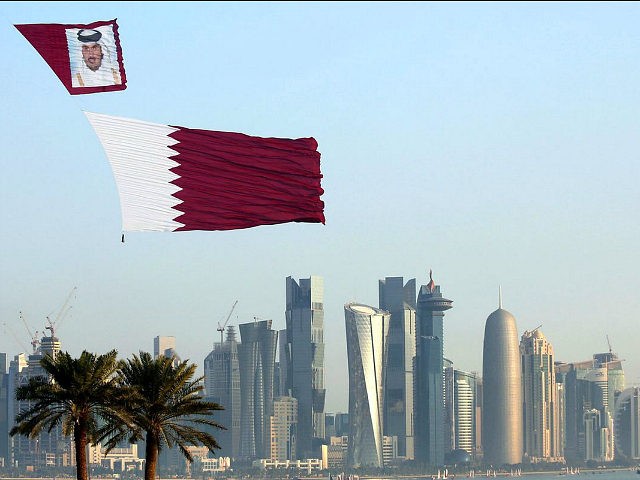The Sunni Arab states aligned against their old Gulf Cooperation Council partner Qatar stepped up their boycott a notch on Friday by putting together an actual blacklist of alleged terrorism financiers linked to the Qatari government.
“The announcement by Saudi Arabia, the United Arab Emirates (UAE), Egypt and Bahrain increases pressure on Qatar over allegations that it interferes in the affairs of its neighbors by supporting and financing Islamist groups,” Reuters observes.
The list names 59 individuals and 12 groups, including Muslim Brotherhood leader Yousef al-Qaradawi and organizations such as Qatar Charity and Eid Charity.
Qaradawi is an enormously influential imam and scholar of Islam who just happens to have hosted one of the most popular programs on Qatar-based Al-Jazeera, the network whose support for the Muslim Brotherhood is a major point of contention with the nations lining up against Qatar.
Qaradawi’s show Sharia and Life is said to have reached over 60 million viewers at its peak. He is also noted for expressing such sentiments as, “We will conquer Europe, we will conquer America! Not through the sword, but through da’wa.” Da’wa means spreading Islam through proselytizing and, as Qaradawi subsequently explained, imposing Islamic sharia law on non-Muslims.
Despite these statements — and such Sharia and Life advice as explaining that men can beat their wives as a last resort to impose discipline — he is often portrayed by apologists as a “moderate.”
Middle East Eye spots a Libyan militant group and six organizations from Bahrain on the list, including Bahraini Hezbollah. These groups formed connections to Qatar when the latter nation helped Bahrain suppress an uprising in 2011, which Bahrain viewed as a plot by Iran to destabilize the island nation.
“Among the 18 Qataris named by the four Arab states are alleged terrorism financiers as well as prominent businessmen, politicians and senior members of Qatar’s ruling family including a former interior minister,” Middle East Eye notes.
The list is rounded out with 26 Egyptians, 3 Kuwaitis, 2 Jordanians, and one individual apiece from Saudi Arabia, Yemen, and the United Arab Emirates.
Arab News reports that a joint statement accompanying the blacklist said it was written in response to “Qatar’s actions in contravention of its commitments include supporting and harboring elements and organizations that threaten the National security of other states.”
The statement criticized Qatar for ignoring its obligations under agreements reached in 2013 and 2014, which essentially called on the emirate to back away from supporting the Muslim Brotherhood and its more energetic offshoots. The governments of Egypt and Saudi Arabia also strongly suggested that Al-Jazeera ease up on criticizing certain governments, such as those of Egypt and Saudi Arabia.
The entities listed on the blacklist were described as “a manifestation of a Qatari government policy of duplicity — one that calls for combating terrorism while simultaneously overseeing the financing, supporting and harboring a vast array of terrorist groups and terrorist financing networks.”
Qatar objected to the blacklist, claiming that it has done its part to attack the “roots of terrorism.”
“The recent joint statement issued by the Kingdom of Saudi Arabia, Bahrain, Egypt and the UAE regarding a ‘terror finance watch list’ once again reinforces baseless allegations that hold no foundation in fact. Our position on countering terrorism is stronger than many of the signatories of the joint statement – a fact that has been conveniently ignored by the authors,” said the Qatari government.
The Times of Israel notes that two of the Qatari individuals named on the blacklist, Sa’d al-Ka’bi and Abd al-Latif al-Kawari, have already been internationally designated as financiers of terrorism and sanctioned by the Qatari government, which worked with the U.S. State Department to freeze their assets and impose travel bans in 2015.
After the blacklist was released, U.S. Secretary of State Rex Tillerson called on the Gulf States and Egypt to ease their blockade of Qatar. It was not immediately clear if the announcement of the blacklist prompted the secretary to make his statement.

COMMENTS
Please let us know if you're having issues with commenting.